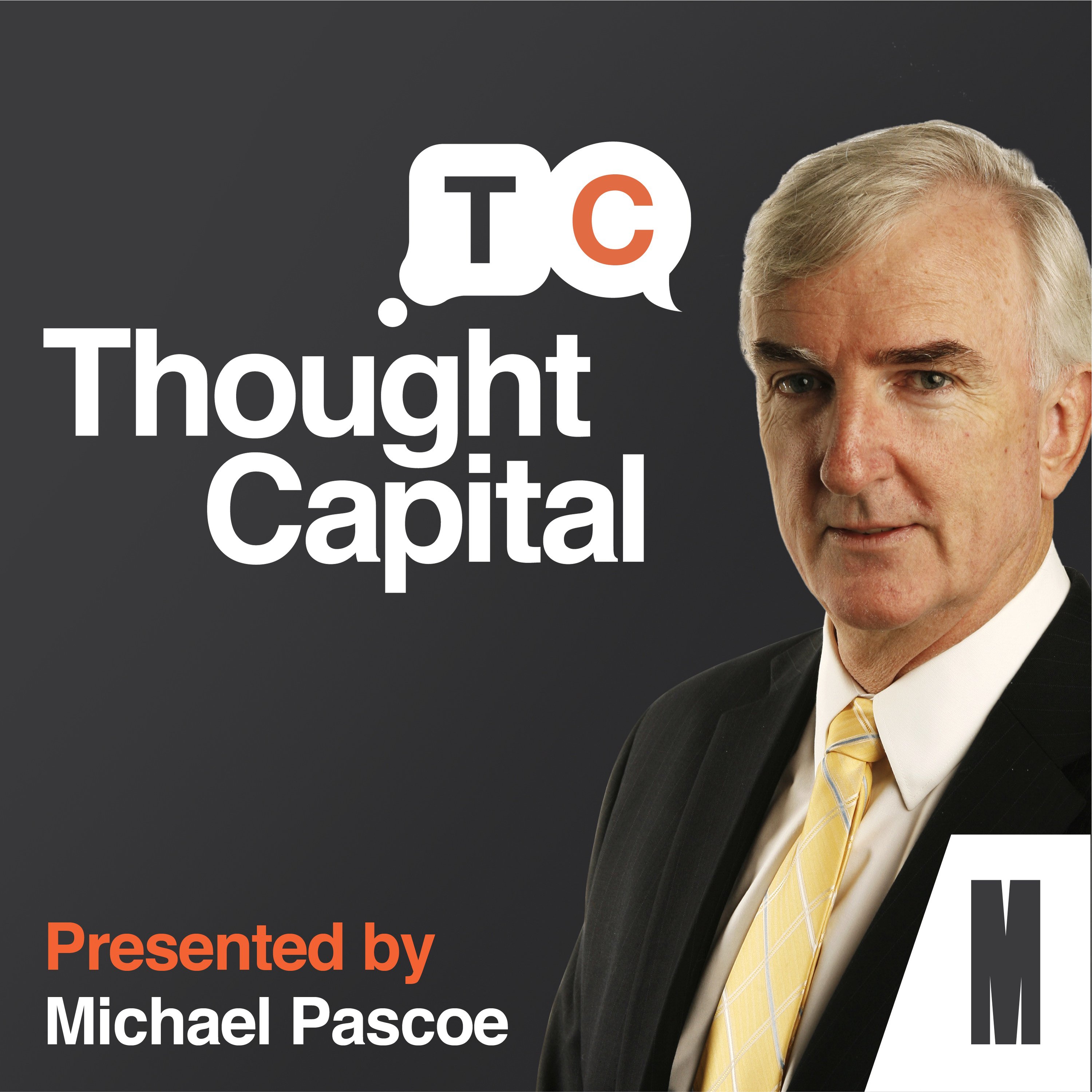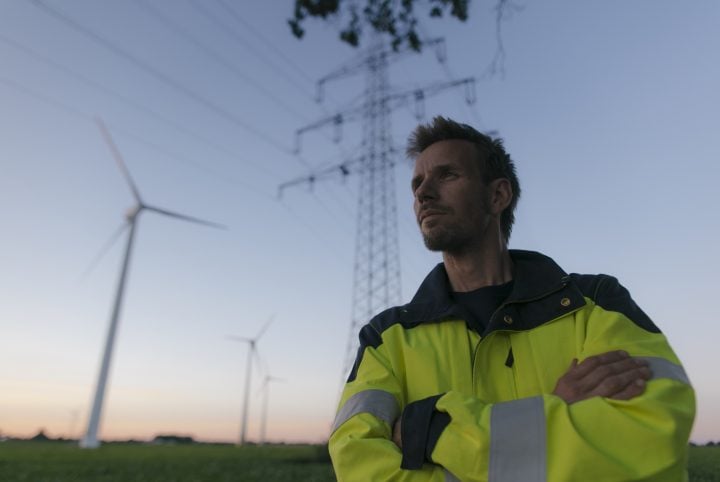We know we need to act on climate change and a great many changes and adaptions are already underway. But how do we measure improvements and the setbacks? Does the measurement vary if you are in government or business? Does everybody measure in the same way? And what are those measurements? Are we talking about carbon footprints or are there other things to measure?
If so, how do we do it? Are there any international standards or can we measure a clean economy at all? With us today, seeking answers to some of those questions is Dr. Anne-Marie Conrath-Hargreaves from the Department of Accounting at Monash Business School. She teaches the course accounting for sustainability and is involved with the critical accounting research network, Asia Pacific.
We have Zoe Whitton. She has two master’s degrees in Sustainability and Environmental Policy and is the executive director at Pollination Group, a firm advising corporates and institutions on climate change and energy transition.
Welcome. So let’s start with an overarching question for you Anne-Marie. Can we measure a clean economy? Is it even possible?
Anne-Marie Conr…: A clean economy is commonly understood as achieving a net zero greenhouse gas emissions. And I think there’s lots of misunderstandings surrounding this. And it actually means that across all the sectors of the economy, the climate pollution that is released into the atmosphere does not exceed what is removed from the atmosphere. So it is not just simply that we will stop emitting any emissions into the air. Now, in order to achieve any kind of measurement of this, I think we need to address this from an accountability standpoint of view.
Michael Pascoe: So what do we start by measuring?
Anne-Marie Conr…: Starting point is to set clear and specific targets, and this then needs to be paired with appropriate metrics and measurements that allow us to actually track the progress or the process that we’re making towards these targets. And such measurements include not just carbon emissions, but it also includes your energy, your water intensity, the percentage of research and development expenditures that go into low carbon alternatives, for example, and it also includes your carbon price, whether that’s internal or external, but it likewise also includes for example, the value and the percentage of the value of assets that’s located in coastal or flood areas. So when we talk about this measuring a clean economy, it’s really important to understand that this is not just limited to emissions, but goes far beyond that.
Zoe Whitton: The nice thing about emissions is that they’re readily observable in some sense, they’re comparable or at least reasonably comparable and they’re globally fundable. So you should produce some emissions in Australia. Somebody gets rid of some emissions in America, it’s all going into a global budget. And so having an accounting system and an observation system and a system of targets that talks about missions at a global scale is something that’s quite accessible. And we are quite good at this now.
Certainly in our regulatory agencies, we’re very good at it. We’ve got in certain parts of the world, quite significant infrastructure that’s been in place for decades now to do this measurement activity, we’re starting to get quite good at it in financial markets as well. There’s certainly parts of it that we still haven’t touched. But when you start to get into conversations about measuring resilience and measuring nature, then you start to get tons and tons of different units, units that are not comparable, quantities that are not fundable. And it all starts to get a lot more complicated. But we do start with this conversation about climate change and particularly about emissions.
Michael Pascoe: Well, Anne-Marie what are the international standards already in use? Are there any, or all companies introducing their own measurements?
Anne-Marie Conr…: There’s actually a lot of them out there. And this has often been described as something that’s a soup of letters, so to say, because there are so many agencies and standard letter out there that operate on an international level. So the answer to your question is actually very complicated because we have this range of standards and certifications that organizations can just pick and choose from as they like if they want to account for their sustainability impact. And most of them are voluntary in nature.
In addition to that, companies have also drawn up their own measurements, their own accounting systems, which often then means actually that they transpose their sustainability impact actually into monetary value in order to really measure the impact of their corporate actions. Overall, the fields can only be described as being high fragmented and highly heterogeneous in nature because the organizations somewhat pick and choose whatever they want to sort of disclose information on.
Michael Pascoe: So we’ve got horrifically complex problem and a total mess trying to deal with it. Where do we go?
Zoe Whitton: The answer to that I think is you try to do it and then you learn while you’re trying to do it. And that’s what gets you to this consolidation, to this clarity that you’re going to need to build in order to build an economy, which is actually capable of governing itself and interacting with its component parts in a way that doesn’t constantly end you up in some sustainability crisis or another. So we’re in a very early stage.
And when we look at how other transitions happened, it takes four decades, five decades to get all of the information systems and the government systems you need in place. So it looks like it’s a mess at the moment, but it’s because we are still going through this accelerated process of trying to tackle and information into capitalism. But I’m very hopeful. I don’t know about you Anne-Marie.
Anne-Marie Conr…: Absolutely. I think also if we look at the early evidence that we have in research, we can actually see that accounting plays a really important role here when it comes to achieving a real effect. So there’s for example, some newer research that shows that if we mandate disclosures, for example, on GHG emissions, and this particular study was done in the UK on listed companies, that we have seen an emissions’ reduction by those firms in the sample of around 18%, over three years, which I think is really impressive.
That’s just because you mandate accounting disclosures, those emissions of those companies actually go down. So in this way, I really would like to emphasise is hopefulness. I guess that Zoe was pointing to that if we really harvest the power that accounting has here, we can actually make a difference with accounting and have real effects.
Michael Pascoe: Well, I needed some optimism at this stage after you had outlined the problem. So just publishing an accounting, somewhat shames companies or some companies into action. How much further can counting go there than that?
Zoe Whitton: Not only does reporting this stuff now put you in this sin bin, so to speak and you have to wear the dance cap to say, I did a really terrible job here and it’s a bit of a shame thing, but your capital market participants also care about it. And so they’ll come to you and say, I’m starting to form my portfolios on the basis of your behaviour here. And I might change my decision with respect to whether or not I want to own your shares, which can change the price of the shares, but also whether or not increasingly I would like to give you debt, or I would like to give you access to insurance.
And so that’s something that’s come into the conversation really big global way in the last five years that is driving it from being just a conversation about shame to a conversation about, well, you probably need to change your behaviour.
We see this particularly in climate change, but the presence of this conversation in financial markets and particularly the presence of this conversation increasingly in debt markets means that it’s not just listed companies anymore, who are under pressure. It’s starting to be something that organisations across the full band of the economy have to deal with and have to count in their operations.
Michael Pascoe: Let’s just be a little bit specific for a moment. Zoe, how, how do companies measure the inputs and outputs the impact on climate change on their way to become cleaner?
Zoe Whitton: There are two that I would really highlight. The first is that the responsibility, your emissions Ambit is starting to move outside of your recreational boundary. And you’ll hear the word Scope 3 thrown around a lot, but it really is becoming something that all organisations need to think about.
And that’s what are the emissions in the value chain, not just from your suppliers. So, the emissions that you rely on, but also for your customers. So, what do your customers have to in order to utilise your product? So that’s become a really big part of the conversation about measurement to the extent that some of the big global standards for reporting on climate change and talking about your climate change related risks have started to explicitly say, you have to have the Scope 3 conversation in the mix when you’re doing targets, when you’re doing measurement.
The other big thing that’s starting to become part of the conversation is what is considered to be a reasonable set of activities that you’re acting on. If you’re acting on climate change. And also if you’re doing sustainability more broadly is growing. And one of the big things that’s coming into that world is nature.
So some companies have been doing what we call environmental profit and loss statements for a long time for ages, but more and more companies have been asked to do that and say what is your natural resource? What’s the impact you have on biodiversity? How are you thinking about reporting that and managing that? And eventually are you going to set targets for it? So the scope of stuff that you need to measure even on climate change is growing, right? Because nature and climate change are a twinned and people are understanding those relationships more and more clearly over time.
Anne-Marie Conr…: Yeah, we have this new, so to say, standard setting body, which thankfully now has to decided to work in consolidation with on the one hand, the Climate Disclosure Standard Board. And on the other hand, the value reporting foundation, which initially wasn’t intended to be the case. Now, I say this is really important because we don’t really need yet another standard set in the mix here. What we need is consolidation, standardisation and something that we can really compare across countries.
The danger that we have with this new body is that of acceptance. And that is because there’s a lack of harmonisation with the global reporting initiative, which is something that has been taken up by a lot of companies around the world, as well as with the European Union. Now at the moment, the European Union is one of the faster moving markets when it comes to mandatory sustainability disclosures and actually accounting for a clean economy and the danger of the European Union, not picking this up and not supporting this new initiative could really influence its worldwide legitimacy and its pickup across the world.
Zoe Whitton: We under emphasise how important this process we’re going through actually is. If this takes 10 years, it will still be one of the most significant changes that we’ve ever processed into capitalism. And, it takes 30 years. It’s still going to be incredible. And when we are in it and we’re going, Gosh, it’s a mess. And we’re all having to report to everyone. It’s taking ages. I’ve been working on this my whole career. It seems like nothing’s going fast enough, but it’s a very, very significant modification we’re actually trying to make.
Michael Pascoe: Is there also a problem here though? And the simple gap in expectations between publicly listed companies and private companies? If it’s only covering a fraction of the world, is there that much point?
Zoe Whitton: There has been an issue with leakage. If you have a certain standard in a public company, you hold that public company to account. One of the things they might do is take the things that don’t fit that standard and put them into private markets, which we’ve seen and we’ve certainly seen a difference in standards, in different jurisdictions meeting that assets have been moved from companies are one jurisdiction to ownership and companies and another jurisdiction because the preferences and standards of financial markets and those jurisdictions have been different. So, it’s certainly been a big problem.
The conversations we have, particularly with capital market participants in the last 18 months, the big feature of those conversations is, okay, we’ve done listed markets. Now we have to do everything else. But your debt, got to do hedge funds, got to do treasuries, got to do real investments in property and infrastructure, we know how to do it over there, and now we need to do it on all of this here.
So it has been the case in the past that the private parts of the economy were shielded from this. It’s not going to be the case for much longer.
Anne-Marie Conr…: We need to take into account our small, medium sized entities, our private entities. And as you said, I think we cannot leave the public sector behind this. We actually need mandates. Beyond the mandates, we will also need the enforcement in order to bring this to action.
Michael Pascoe: The other side of the coin, measuring greenwashing. So we can avoid greenwashing. How good are we at that? How effective can we be at that?
Anne-Marie Conr…: So I think this is a really interesting and really important question. And it’s one that we discuss in my class quite a lot, because this is actually where the accounting comes in. Because it’s the accounting that will essentially help you differentiate between, is the company doing what it’s saying it’s doing. So can we help the company to account? And my students often start off the class being quite enthusiastic about certain companies that they might perceive as being very sustainable in their actions because of how they portray themselves in the public eye as being sustainable.
And then as they learn how to evaluate sustainability, they’re actually not as green as they would like themselves to be perceived. Here, the assurance and the certification is really important in terms of how can we actually validate the information that is being produced. And I think here really, we need to talk about how can we provide assurance on this, for example, through certification or audit procedures.
Zoe Whitton: One of the things people are starting to look for measurements on that they haven’t looked for in the past, it’s becoming more and more about track record. So instead of saying, tell me what your 2030 target is. It’s tell me what your 2030 target is and tell me what your emissions have been doing for the last four years.
Michael Pascoe: The effort of measuring of accreditation of the massive offsets, all that hierarchy. Is it too hard compared with simply putting on a very fat carbon price that would have market mechanism, do the work instead of accountants?
Zoe Whitton: We often could ask the question about wouldn’t you just do this fire policy. And the answer is firstly yes, you would because a lot of your decisions become smoother. A lot of your risk and benefit sharing negotiations between different entities become much more straightforward.
The transaction costs and the whole system goes down, the governance load and the whole system goes down and your transition just to be a lot more predictable. You probably waste less money, you strand fewer investments, you make fewer mistakes. So in many cases, at least we think that having something like a carbon price in place tends to put you in the right place and get you on the right path with relative efficiency. But what I would say about that is that the accounting is very important because we can’t live in an economic system, or at least it’s a pain to live in an economic system that keeps making the wrong decision and then has to be whacked back onto track by policy.
Michael Pascoe: A price on carbon is nothing new. It has been demanded by economists for many, a long year now. And it’s a reality in many countries, yet there is no global standard. The current price is still very low, around $4 spot of US.
Two Monash affiliated researchers, Dr Ummul Ruthbah and Jan Ahrens along with Dr Roger Cohen, who you’ve heard in a previous episode have tried to put a real price on carbon. Dr. Ummul Ruthbah is a senior research fellow with the Monash Centre for Financial Studies. She has a PhD in economics from MIT and has worked both with the world bank and the international monetary fund, Jan Ahrens is an expert on Emission Trading Carbon Pricing and Energy Markets. He is the head of research at Spark Change, a provider of carbon investment products and data. Jan, can I start with you? Why do we focus on the carbon price? Does it measure climate change?
Jan Ahrens: Carbon pricing is not per se measuring climate change. Climate change is of course measured in temperature increase, but carbon pricing is seen as a vital instrument to get to the world to a low carbon economy. There are many different ways of how you can force or guide companies to reduce emissions. You can use standards like forcing them to use more efficient technologies. You can rule out some technologies to forbid them to face out coal, for example, or you can use pricing. And with pricing again, you have two different ways what you can do. On the one way you can text companies, meaning you set up price of how much it costs to pollute one ton of greenhouse gases and companies need to pay for it, which they will of course pass onto the consumers. So ultimately we all face the costs of dirty products we use.
And the other way to look at this is a carbon pricing market. A market where policy is not setting the price. The regulator was not setting the price, but the market finds out what should be the relevant price to achieve a certain emission reduction goal. Pricing externalities means that you put a cost on things that were previously not priced. For example, pollution could be waste, it could be waste water, and it can be carbon emissions.
Michael Pascoe: What does the real car carbon price index share?
Ummul Ruthbah: There are about 65 jurisdictions that have a mandatory carbon price either in the form of a carbon tax or through an emissions trading system. And the price varies a lot across these jurisdictions. For example, in Poland, the price is less than a dollar per ton. And in Sweden, it’s more than $130 per ton. And these are US dollars by the way, which makes it very difficult to do any analysis on global carbon price. So the index that we created, or the group of indices that we have created, it taking into account, both the variation in prices and coverage, across different jurisdictions. And so far, we know these indices have the most comprehensive coverage and they track the prices of carbon globally since 2013.
Michael Pascoe: The overall index and the sub indices, tell us what countries and what regions are pricing carbon at what level. What’s the use of that? What does that tell us that simply the price of carbon in any country doesn’t?
Ummul Ruthbah: An emission is a global fundamental, right? So it doesn’t matter where it takes place. It affect the globe all the same. So the price of carbon should be the same as well, no matter where the emission takes place. So having these fragmented prices will not help us to get to a unified carbon price. And this is what we are all talking about. We want to have a uniform carbon price to reach the goals of the Paris agreement to limit global warming below 1.2 degrees or to 1.5 degrees. And we believe that the indices that we have created, it can be used in a variety of ways by policy makers, companies, even by researchers and investors. For example, our top index, which is the real carbon price index, it shows the average price of carbon globally. So if any new jurisdiction wants to set a price on carbon, it can take it as a benchmark.
Jan Ahrens: So our index standardises, this creates one price point for average emissions globally, across all sectors, across all countries to tell you how serious markets takes the combat against climate change. And at the moment we are not taking it serious. That’s at least what the market tells us. At the price of about a coffee, it’s not ambitious enough for industry to decarbonize substantially and for consumers to switch. Yes, in a perfect world we would like to see all countries globally to adopt a high car price or a very stringent emission trading market. Just the first step to adopt one, some sort of carbon price would be a first step in the right direction.
Michael Pascoe: If the United nation suddenly gave you the power, make one initiative, what would it be?
Ummul Ruthbah: I would have a universal carbon tax. That’s the simplest of all mechanisms that you can have.
Jan Ahrens: I would agree with Ummul. Overall, we need a strong economic incentive for countries to decarbonize. Ultimately, we would need a system where ideally you would have the market figuring out the lowest cost to reduce emissions globally because that would be most effective.
Michael Pascoe: Anne-Marie and Zoe, what are your priorities in this area of measurement, given that we haven’t got three or four decades, what would you like to see change?
Anne-Marie Conr…: We need to have targets and as targets need to have clear timeframes, they need to be specific. They need to be intensity based. They need to have a base yet. There need to be certain KPIs. It can’t just be that we rely on 50% of the reduction of our emissions by 2050 coming out of technology breakthroughs. That’s not a specific target. That’s not a specific KPI. That’s not going to help us actually measure or achieve the progress that we need to make in order to adhere to the Paris climate agreements.
Zoe Whitton: We need to have mandatory disclosure in a lot of regions. And I think that’s just because financial markets are actually relatively good at managing some of this stuff. When the disclosures are comparable and reasonable and they’re there and they’re available. And the annual report we’re getting there with voluntary disclosure, but mandatory just kind of speeds that whole process up. So, that’s quite straight it forward. The other thing I note, which is really quite esoteric is what I would call demand.
And this is the economics of the piece. What I mean here is that presently, we got a lot of reporting. We’ve got a lot of targets, but we still have a lot of conversations with companies. And particularly with early stage companies with solutions who say, look, I could sell green steel. If only someone would buy it. We’re doing a lot of work with oil and gas companies to try and change the energy mix.
As Anne-Marie said to do this big shift and that’s all well and good, but I need someone to buy my product in order for me to get going on this great sustainable pathway that got ahead of us and on this opportunity. And so coming to demand, one of the things I would say is that organisations across the system, whether it’s government procurement, whether its organizational procurement, whether you’re a listed company, whether you’re a private company, if you can demand products, even just the regular products that you buy that have the footprint you want, you start to set up the economics to make that happen. Even without having the policy in place.
Michael Pascoe: This is a multi-layered complex topic. We’re only partly on the way to resolving. Thank you to all our guests for being on the show. We hope you’ve enjoyed listening. Please give us a review and tell your friends to listen too. Next time we’re talking to the experts about the Energy Equation.
Thought Capital is written and produced by Tina Zenou editor is NADIA Hume. Helen Westerman is our executive producer. My name is Michael Pascoe. See you again soon.




